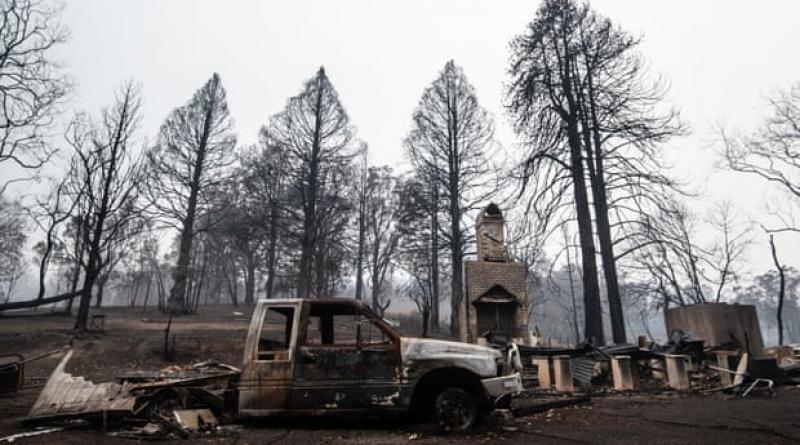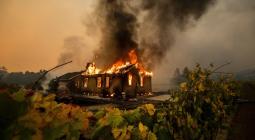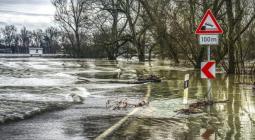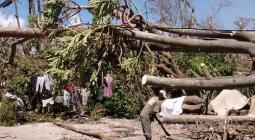Climate crisis will make insurance unaffordable for people who need it most.

In a submission to the royal commission into natural disasters the Consumer Action Law Centre calls for an inquiry into insurance.
The climate crisis will make insurance unaffordable for many people, particularly those in regional areas, as the damage from extreme weather events increases, a consumer group has warned.
In a submission to the royal commission into natural disasters sparked by last summer’s unprecedented bushfires, the Consumer Action Law Centre calls for an urgent independent inquiry into the cost of insurance in light of heightened risks linked to global heating.
The group’s recommendations include the introduction of an insurance price monitor to prevent consumers being exploited, a standard definition of key terms such as “fire” in industry contracts and a modernised regime of what “standard cover” means so policies can be easily understood and compared.
Gerard Brody, the Consumer Action Law Centre’s chief executive, said there was a risk home insurance could become unaffordable in the wake of last bushfire season, leaving many uninsured or under-insured. He said the issue had been compounded by the Covid-19 pandemic as many people affected by bushfires in regional communities later lost the income they relied on from tourism and hospitality.
“Insurance promises to offer peace of mind, but with delayed claims, confusing policies that don’t always provide the expected coverage and woeful responses to financial hardship by the insurance industry we’re concerned that home insurance still isn’t working for many people,” Brody said.
The law centre’s call follows similar warnings elsewhere. Murich Re, the world’s largest reinsurance company, last year told the Guardian that climate change could make cover for ordinary people unaffordable as it attributed US$24bn of losses from the Californian wildfires on human-induced heating.
In October, the Reserve Bank of Australia found it was increasingly important that investors and institutions manage carbon risk, and warned insurers were the most directly exposed to climate change. It said inflation-adjusted insurance claims for natural disasters were more than twice as large last decade as the one before, and was likely to continue to grow.
The Consumer Action Law Centre said since the summer bushfires it had received reports from community organisations in regional areas of significant delays in insurers undertaking assessments or arranging quotes for bushfire damage in remote parts of Victoria.
It said problems spanned different types of natural disaster, citing an Australian Competition and Consumer Commission inquiry into insurance in northern Australia that found premiums had increased far more in that part of the country than elsewhere over the previous decade after insurers adopted a more fine-grained assessment of the greater risk in the north from cyclones and floods.
The group said rising costs were increasingly being worn by people who needed insurance most, when historically risk had been shared across the community.
“We have significant concerns about how this will play out as the impact of climate change worsens, particularly for regional parts of Australia where climate change means bushfires will be more frequent and more severe,” Brody said in the centre’s submission to the royal commission.
“It was recognised in the letters patent of this royal commission that this is the reality Australia is facing. For Australians who live in areas increasingly at risk from bushfires, premiums are going to continually (and sometimes rapidly) increase.
“If homeowners cannot afford to rebuild due to the cost of premiums or the impacts of underinsurance, then they will be forced to leave their community.”
Consumer Action’s recommendations include the government introducing outstanding recommendations from the banking royal commission relating to insurance as a matter of urgency to ensure people were treated fairly.
Submissions to the natural disasters royal commission close on Tuesday. A final report is due in August.
27 April 2020
The Guardian




